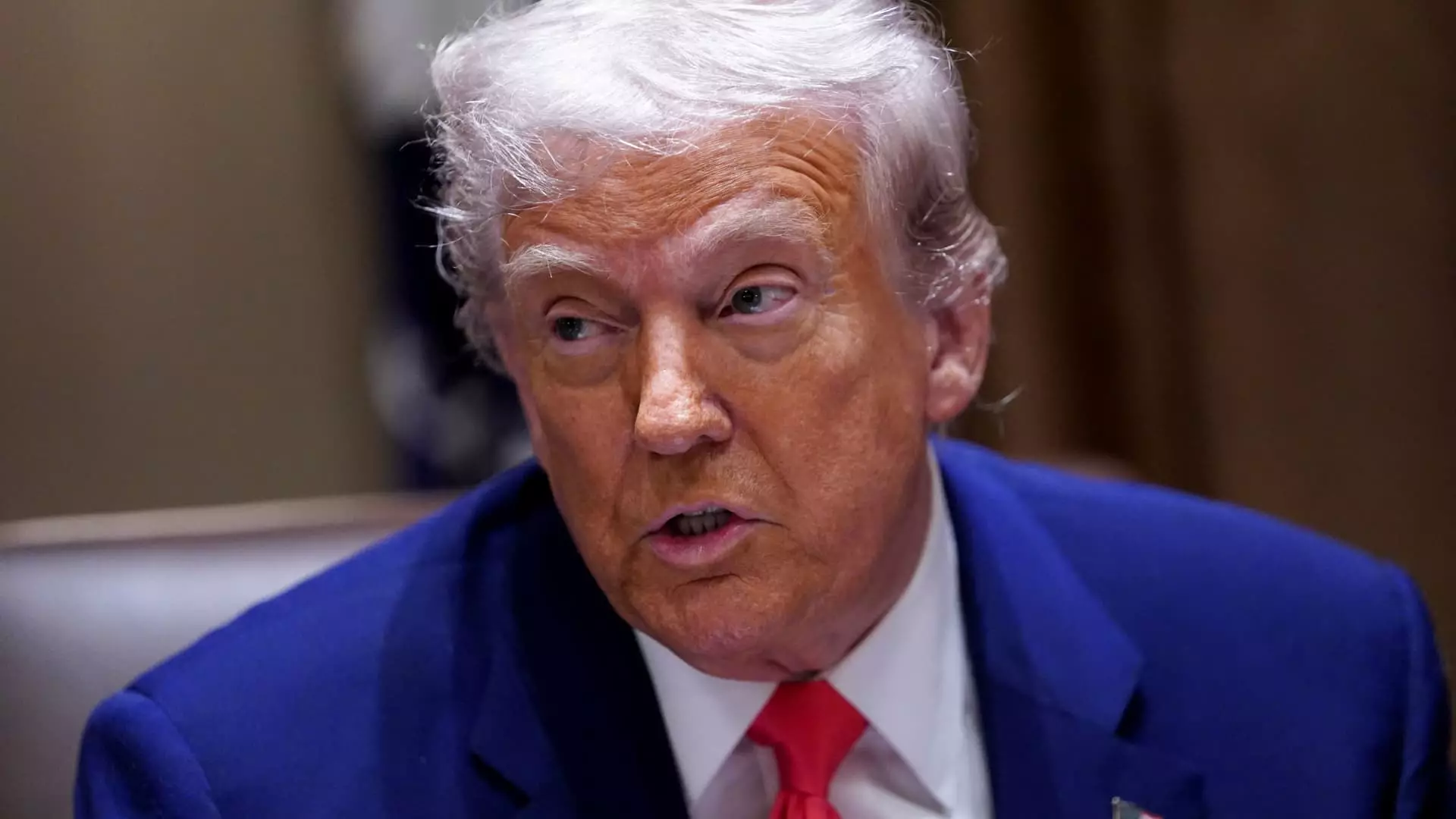In an era where global interdependence seems non-negotiable, the recent moves by President Donald Trump to escalate tariffs on Chinese imports have ignited a serious debate about the future of U.S.-China trade relations. Economists, including Erica York from the Tax Foundation, point out that a tariff rate exceeding triple digits effectively terminates most trade between the two countries. When the U.S. brings the tariff rate to an astonishing 145%, the consequences could be economically disastrous. The implications extend far beyond mere statistics; they signal a shift toward isolationism that could reshape America’s financial landscape for decades.
The precipitous market decline following the announcement underscores the immediate fears among investors. A drop in consumer confidence becomes a self-perpetuating cycle leading to diminished market performance. When businesses must account for increased costs due to tariffs, those costs invariably flow down to consumers, leading to inflated prices on basic goods. When you consider that China has been a key player in providing affordable products to American consumers, one can’t help but worry: How did we arrive at a moment where a significant portion of the American populace may no longer afford staple items?
The Unintended Consequences of Protectionism
Trump’s administration may argue that these tariffs are a move to protect American jobs and industries. However, such protectionist policies often come at a heavy price. The current tariff structure not only impacts trade dynamics but threatens a significant increase in inflation. Consumers are bound to face a harsh reality—as prices for everyday goods rise, their purchasing power diminishes, leading to a net economic detriment across the board. The reality is that these tariffs do more than punish foreign competitors; they sap the vitality of the U.S. economy itself.
According to projections, the cumulative effect of these tariffs could lead to an increased federal tax revenue of $171.6 billion this year alone, the largest tax hike we’ve seen since 1993. However, is this a real boon for the American public, or simply an illusionary figment masked by short-term fiscal gains? The reality is that while the government temporarily benefits, working-class Americans may face the brunt of rising costs. As we dive deeper into an era of unprecedented tariffs, we ought to be critically assessing who truly benefits from such an economic landscape.
Repercussions of Ineffective Policy
The temporary suspension of tariffs on imports from various countries other than China may seem like a reprieve, yet it exposes the deficiencies in Trump’s overall trade strategy. The move leaves China in a precarious position, allowing it room to retaliate without significant consequence. As reported, China has already responded with a staggering increase in its own tariffs—now reaching 84% on U.S. goods. This cyclical tit-for-tat can only deepen the rift, ultimately making resolution even more complicated.
While President Trump’s approach harkens back to the isolationist sentiments of the past, we ought to learn from history. Trade wars tend to stifle growth, suffocate innovation, and ultimately lead to economic stagnation. For all intents and purposes, we are witnessing an era where protectionist governance obscures the merits of cooperation and mutual benefit.
Looking Ahead: A Call for Rational Discourse
As we navigate these treacherous waters, it is crucial for both policymakers and the public to engage in rational discourse rather than succumb to inflammatory rhetoric. The economic ramifications of Trump’s tariff policy are not abstract figures; they translate to real people and real struggles. We must invest our energy into crafting strategies that prioritize sustainable growth through international collaboration, rather than confrontational tactics that risk plunging us into an unprecedented economic downturn.
In an interconnected world, embracing a more collaborative stance on trade with China could yield far greater benefits than the current trajectory suggests. To ignore these lessons is to flirt dangerously with an economic abyss that will leave the American public bearing the brunt of its consequences. Economies thrive on exchange, not enmity, and it’s high time that our leadership reflects that critical understanding.


Leave a Reply